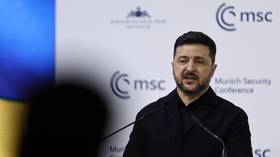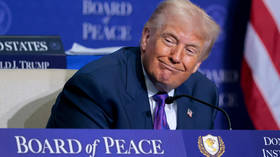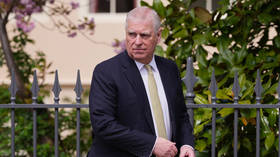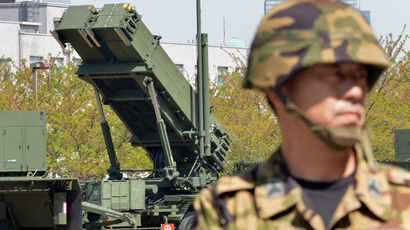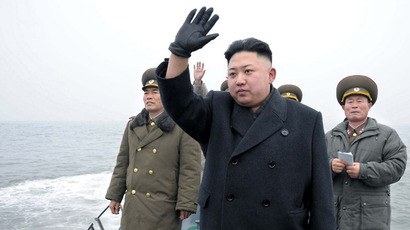US rejects N. Korea’s demands to be recognized as a nuclear arms state
Washington has refused to recognize North Korea as a nuclear-armed state, effectively closing the door on negotiations with Pyongyang. North Korea said it would only conduct talks with the US as an equal nuclear state.
"North Korea's demand to be recognized as a nuclear weapons
state is neither realistic nor acceptable,” US Assistant
Secretary for International Security and Nonproliferation Thomas
Countryman told Reuters in Geneva. One of the main conditions laid
out by the US for lifting sanctions is Pyongyang’s renouncement of
its nuclear ambitions.
This follows demands by Washington for Pyongyang to show “clear
signs” that it is taking steps to end nuclear weapons
development; only then will the US consider easing the crippling
sanctions against the isolated state.
The conditions were decried as unacceptable by North Korea's Rodong
Sinmun newspaper on Tuesday.
“If the Democratic People’s Republic of Korea [DPRK] sits at a
table with the US, it has to be a dialogue between nuclear weapons
states, not one side forcing the other to dismantle nuclear
weapons,” the newspaper said.
On Thursday, Pyongyang issued conditions to the US and its southern
opponents, hinting that the conflict may be coming to an end. They
asked for the withdrawal of US troops from the South an end to
military drills on the Korean Peninsula.
Over the past few weeks, tensions having been steadily building on
the peninsula amid heightening bellicose rhetoric from Pyongyang,
which threatened strikes on the South and the US. The US sent two
F-22 jets to the Korean Peninsula at the beginning of April,
drawing Pyongyang’s ire and further exacerbating tensions.
The crisis began when North Korea carried out its third nuclear
bomb test in February, provoking condemnation from the
international community and heavy sanctions imposed by the US.
Washington had already cut off food aid it had been providing to
the Asian nation as part of a denuclearization-for-aid agreement
reached in 2005.
‘Ultimately it's the Americans’ fault’
Author and Asia specialist Tim Beal told RT that Washington’s
policy towards Pyongyang was the root of the crisis.
“If they had stuck to all their agreements in the past it never
would have come to this,” he said in an interview. “If
they’d stuck to the agreed framework that Clinton signed back in
1994, then the Yongbyon nuclear reactor would have been dismantled
and taken out of the country.”
He noted that every time the nations had come close to sealing a
deal, Washington has “shied away,” inciting Pyongyang to
further aggression.
Beal described Pyongyang’s nuclear ambitions as their only
bargaining chip with the US, and that their ultimate goal was to
make peace with the US and deliver much-needed food aid to a
starving population.
However, “the Americans upped the ante with this current range
of military exercises, in order to stop the new South Korean
government engaging with the North as Park Geun-hye had promised in
her election campaign,” he told RT.
History repeats
He concluded the Americans would eventually end up recognizing
North Korea as a nuclear-armed state. Citing US policy towards
India under the Bush Administration, Beal described how history was
repeating itself.
“The Americans under George Bush did the same thing with India.
They had told off India for developing nuclear weapons and for
being outside of the Non-Proliferation Treaty,” he said, adding
that Washington eventually compromised on India, leaving the
Non-Proliferation Treaty by the wayside because they decided it
made a “good counterbalance” to China in the region.
Washington signed the US-India Civil Nuclear Agreement with Delhi
in 2005, effectively exempting India from the Non-Proliferation
Treaty.







